Near-total abortion ban fails in SC. Why didn't it receive enough GOP backing?
Published in Political News
GREENVILLE, S.C. — A near-total abortion ban for South Carolina failed to advance after a majority of a committee’s Republican state senators declined to cast a vote.
Four Republican senators abstained on the final vote after several amendments to remove the bill’s most extreme measures failed during a hearing Tuesday afternoon.
The bill had very little support from state senators, and advocates from both sides of the abortion debate said its proposals went too far. Without making compromises, Sen. Richard Cash, R-Anderson, was unable advance the bill out of subcommittee. Only Cash and state Sen. Tom Fernandez, R-Dorchester, voted for it.
“There’s been a lot of discussion about what can make this bill go forward,” state Sen. Brad Hutto, D-Orangeburg, told reporters after the meeting. “And I think the general consensus is, in the form that it’s in right now, it won’t happen.”
One of the bill’s three sponsors, state Sen. Billy Garrett, R-Greenwood, didn’t vote to advance the ban. He proposed several failed amendments that would remove penalties for the person that had an abortion.
“After much deliberation, I have decided that, for my constituents at least, that we’re in a situation where we just cannot, it’s not proper, in our estimation, to create criminal laws to punish our pregnant women,” Garrett said.
As written, the bill would ban all abortions, except when the life of the pregnant person is at risk. Currently, abortions are permitted until a heartbeat is detected, which typically falls around the sixth week of pregnancy. There are also currently exceptions for instances of rape, incest or a fatal fetal anomaly.
It would also become illegal to share information or resources about how to have an abortion. The bill could make individuals that have abortions, physicians that administer abortions and South Carolinians that provide resources or information to women seeking an abortion into felons, with sentences up to 30 years in prison.
Republican senators, many who said they supported further restricting abortion, proposed several amendments to the ban, including eliminating penalties for women who end a pregnancy. But Cash argued the changes undercut his intention to ban abortion in all cases.
“I would ask my fellow senators this: Will this bill save more lives by giving mothers complete immunity to kill their unborn babies or by retaining a penalty that will act as a deterrent and send the message that unborn babies are indeed fully members of the human family?” Cash said.
Most of the amendments failed as the three Democratic lawmakers on the subcommittee voted alongside Cash against the compromises. On each of the compromises, another Republican senator voted no or abstained.
Other proposed changes to insert exceptions for rape and incest and allow South Carolinians to share information about terminating a pregnancy were not adopted. State Sen. Jeff Zell, R-Sumter, said he could not vote for the bill without the exceptions for rape and incest.
The bill needs a majority of votes to advance to the full committee. The three Democratic lawmakers on the subcommittee, state Sens. Hutto, Ronnie Sabb, D-Williamsburg, and Deon Tedder, D-Charleston, opposed the bill and all amendments.
Abortion advocates and physicians warned the law could also end up restricting fertility treatments and contraceptives, though the bill’s sponsors denied that that was the intention.
“It is profoundly dangerous and will put women who are already living on the border in South Carolina, in so many ways, it will place us at even greater risk,” said Vicki Ringer, the director of public affairs at Planned Parenthood South Atlantic, in an interview with The State.
People flooded the South Carolina statehouse grounds and hearing room for the second time this fall to voice concerns and support for the proposed near-total abortion ban.
Amendments that would ‘gut’ bill failed
Garrett proposed two amendments to lessen penalties for women that had an abortion. A majority of Republican committee members supported the change, but both failed.
One amendment would have abolished criminal and civil penalties for pregnant women. The amendment aligns with the view of many anti-abortion groups in the state, including South Carolina Citizens for Life.
Cash said he disagreed emphatically with Garrett’s amendment, saying it would “gut” the bill. All three Democratic senators voted no, in addition to Cash and Sen. Matt Leber, R-Charleston.
Cash spoke extensively on how medication abortion, typically mifepristone, can be sent across state lines, allowing more individuals to terminate a pregnancy. Women having abortions aren’t penalized under current state law, something Cash wants to change.
Following the failed vote, Garrett proposed a compromise to limit the penalties to up to two years in prison and an $1,000 fine. The penalties could be averted by the women testifying against who helped them terminate their pregnancy.
That amendment also failed after Cash and the Democratic lawmakers voted against it. Zell abstained, leaving the vote 4-4.
Without support from the subcommittee, the bill’s chances at advancing are slim. Another subcommittee meeting has not been scheduled.
_____
©2025 The State. Visit thestate.com. Distributed by Tribune Content Agency, LLC.
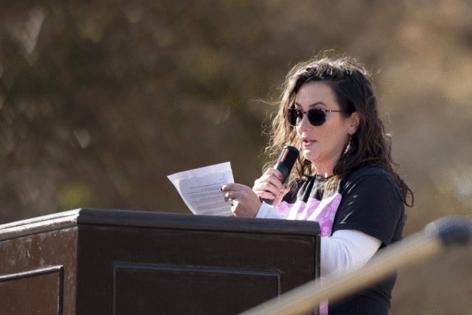
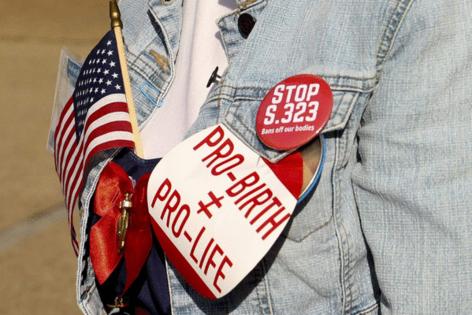
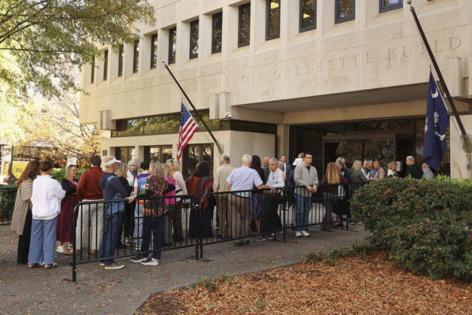
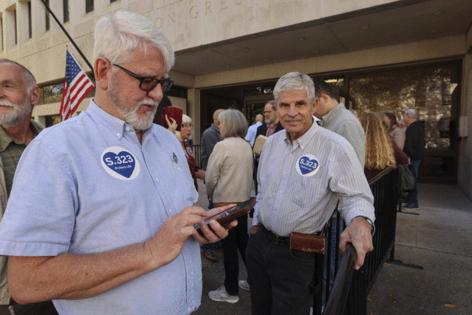
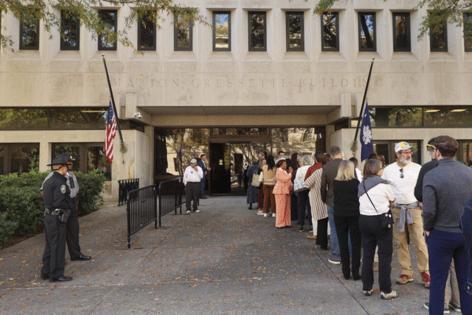




























































Comments